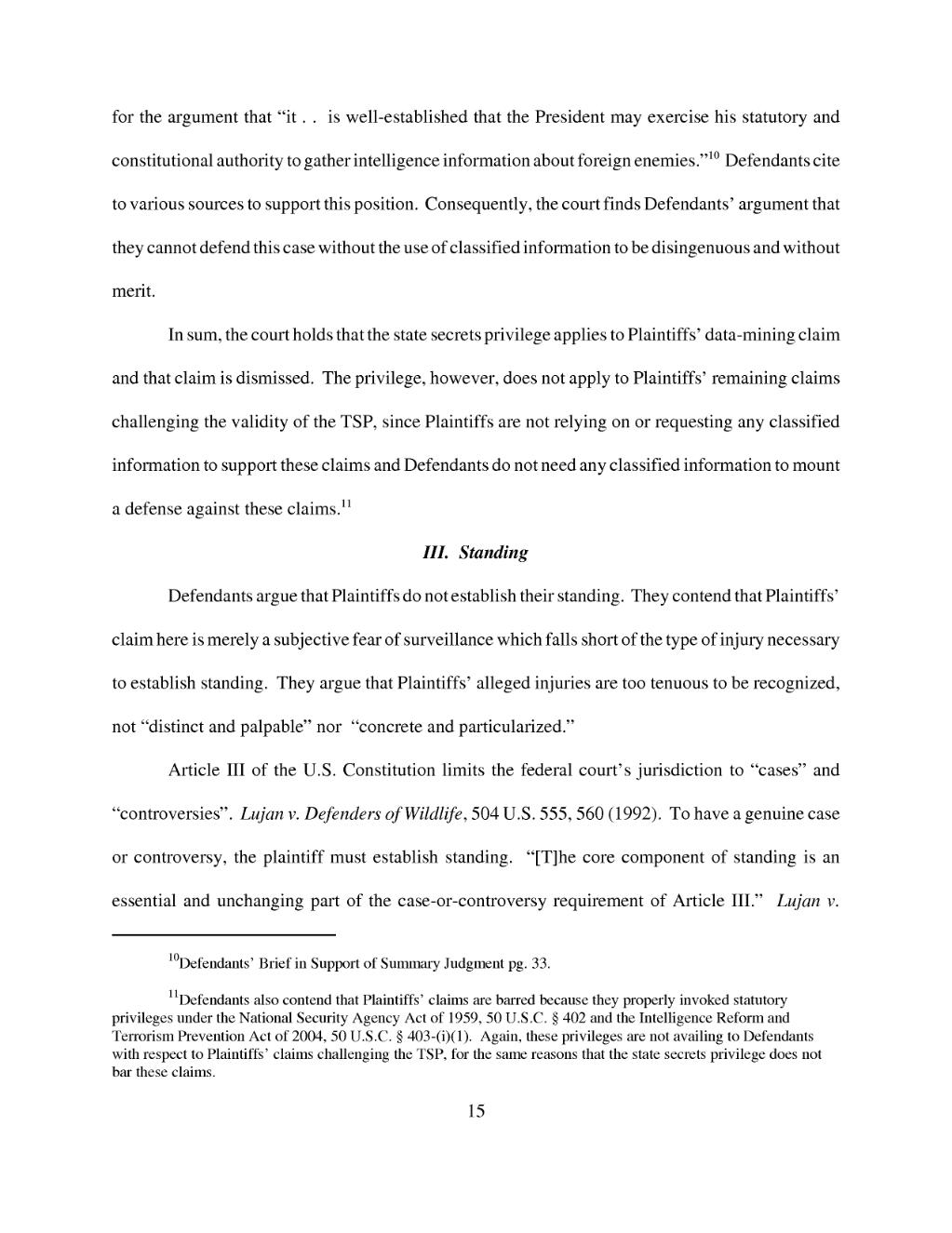for the argument that "it .. is well-established that the President may exercise his statutory and constitutional authority to gather intelligence information about foreign enemies."[1] Defendants cite to various sources to support this position. Consequently, the court finds Defendants' argument that they cannot defend this case without the use of classified information to be disingenuous and without merit.
In sum, the court holds that the state secrets privilege applies to Plaintiffs' data-mining claim and that claim is dismissed. The privilege, however, does not apply to Plaintiffs' remaining claims challenging the validity of the TSP, since Plaintiffs are not relying on or requesting any classified information to support these claims and Defendants do not need any classified information to mount a defense against these claims.[2]
III. Standing
Defendants argue that Plaintiffs do not establish their standing. They contend that Plaintiffs' claim here is merely a subjective fear of surveillance which falls short of the type of injury necessary to establish standing. They argue that Plaintiffs' alleged injuries are too tenuous to be recognized, not "distinct and palpable" nor "concrete and particularized."
Article III of the U.S. Constitution limits the federal court's jurisdiction to "cases" and "controversies". Lujan v. Defenders of Wildlife, 504 U.S. 555,560 (1992) To have a genuine case or controversy, the plaintiff must establish standing. "[T]he core component of standing is an essential and unchanging part of the case-or-controversy requirement of Article III." Lujan v. [*16]
- ↑ Defendants' Brief in Support of Summary Judgment pg. 33.
- ↑ Defendants also contend that Plaintiffs' claims are barred because they properly invoked statutory privileges under the National Security Agency Act of 1959, and the Intelligence Reform and Terrorism Prevention Act of 2004, -(i)(1). Again, these privileges are not availing to Defendants with respect to Plaintiffs' claims challenging the TSP, for the same reasons that the state secrets privilege does not bar these claims.
